Pesticide initiatives: a ‘David-versus-Goliath’ campaign
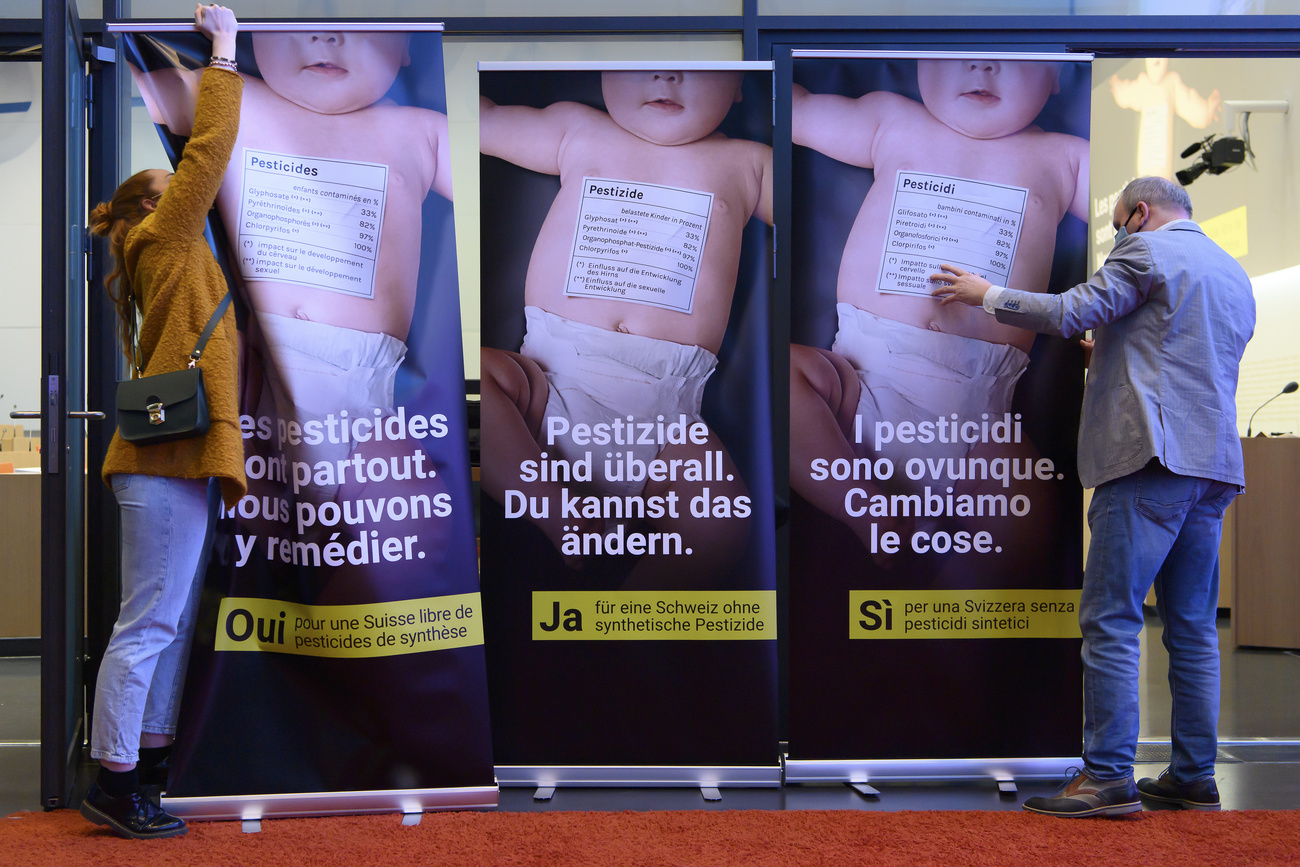
Is it finally time for a change in Switzerland’s agricultural policy? Organic farmer and Green Party politician Kilian Baumann says yes – and explains why he is supporting both upcoming votes on pesticide use in the country.
On June 13, voters will decide on two agriculture-related people’s initiatives which have already sparked heated debates. The first wants to stop subsidies to farmers who use pesticides or prophylactic antibiotics, or who import livestock feed. The second calls for a complete ban on the use of synthetic pesticides as well as an import ban on products which were manufactured with or which contain such pesticides.
Opponents say the initiatives are too extreme. The proposals misinterpret the reality of the farming sector in Switzerland and would cause massive damage for farmers if approved, they say. On top of this, they reckon the initiatives wouldn’t even bring about the progress aimed at, since food production would simply end up being outsourced.
Kilian Baumann is a Bern parliamentarian with the Green Party, as well as an organic farmer. He is also one of the faces of the “yes” side for both initiatives, although he wasn’t involved in their initial formulations. Baumann has always been a critic of postponing agricultural reform in Switzerland. He wants to see a marked increase in organic farming.
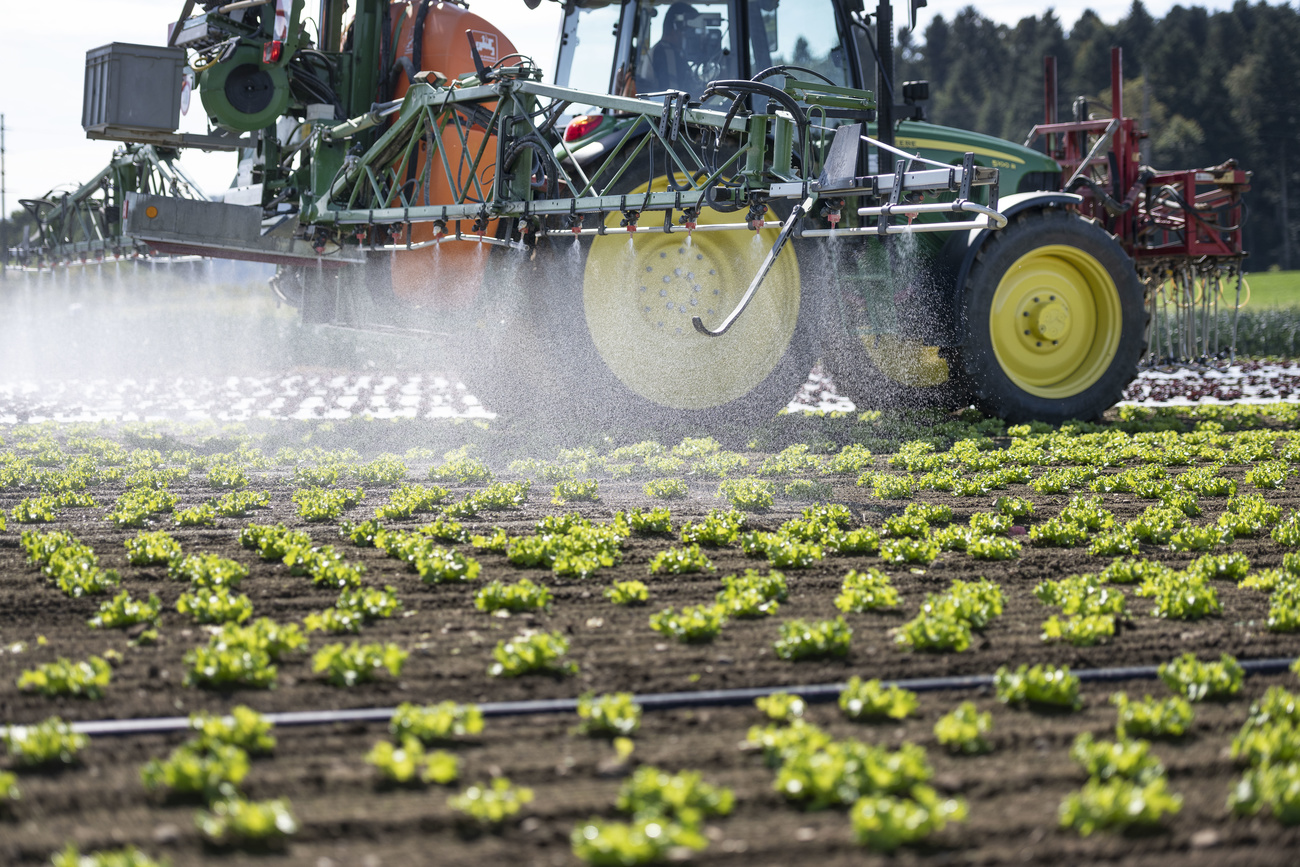
More
Calls grow louder for pesticide-free food and water
SWI swissinfo.ch: In Switzerland, the idea of nature and the land as pure and “untouched” is widespread. Is that image misleading?
Kilian Baumann: Over time we have slipped backwards. Before, we were on a better track, but in the past few years agricultural reforms have been blocked and necessary measures were put on hold. Look at our neighbours: Austria is way ahead when it comes to the levels of organic farmland and holdings; in Germany, Bavaria and Baden-Württemberg are also ahead of Switzerland. Unfortunately, we don’t live in the pristine paradise we like to imagine.
This problem isn’t new – almost every day, we read reports about pesticide traces in drinking water, about natural springs that can’t be used anymore because the maximum values for toxicity have been exceeded, about bees dying, insects disappearing, biodiversity being damaged and so on. The root causes behind all this are also known, and agriculture is responsible for a large part of it. Or more accurately, agricultural policy. It’s not us farmers who are to blame, but the political framework.
SWI: Where would Switzerland stand if these two initiatives were accepted?
K.B.: We would take a big step forward, if as a country – at the national level – we were to stop using synthetic pesticides, and if we were to better correlate the number of livestock being farmed according to the amount of land available.
Up to now, only individual regions have decided to stop using such pesticides. If the entire country was to do the same, it would have an incredible international impact. I see it as an opportunity. Switzerland would be a pioneer, positioning itself in favour of sustainability, ecology, and climate protection – all major issues of the future.

SWI: What is the position of Green parties in other European countries? Are efforts also being made at the EU level?
K.B.: The European Green DealExternal link wants to make agriculture more ecological across the continent. There are similar movements in practically all western countries where direct payment [or subsidy] systems are in place for farmers, and where agriculture can be judged on its ecological impact. All countries face the same problems.
But there is also a lot of opposition, since financial interests are in play. Big profits are made in a system of intensive farming which uses a lot of fertiliser, pesticides, and machinery.
SWI: Both initiatives have been labelled “too extreme”. Would it not have been more effective to have formulated them a bit less strongly?
K.B.: The proposed transition periods of eight and ten years respectively are generous. On top of that, there will be a parliamentary process to translate the initiatives into legislation. And there is a certain room for flexibility when it comes to implementation, for example for the changes to animal feed rules, which would be impacted by the “drinking water” initiative.
It’s also important to say that both initiatives were launched by citizen committees, not by political parties or interest groups. This shows there are clear worries about these issues in society. Over the past years, politics have failed to follow up on these worries. Agricultural reform is blocked and there hasn’t even been any counter-proposals put forward in reaction to these two initiatives. People are now saying, “enough is enough”.
SWI: But beyond such concerns, organic farming is not a big money-spinner. Would that change if the initiative was accepted?
K.B.: Yes, I would expect it to. The accompanying measures to implement the initiatives would also be important here, for example duties on imports and exports. It’s not just a question of the free market dictating the rules of the game. We can also prepare control mechanisms in advance.
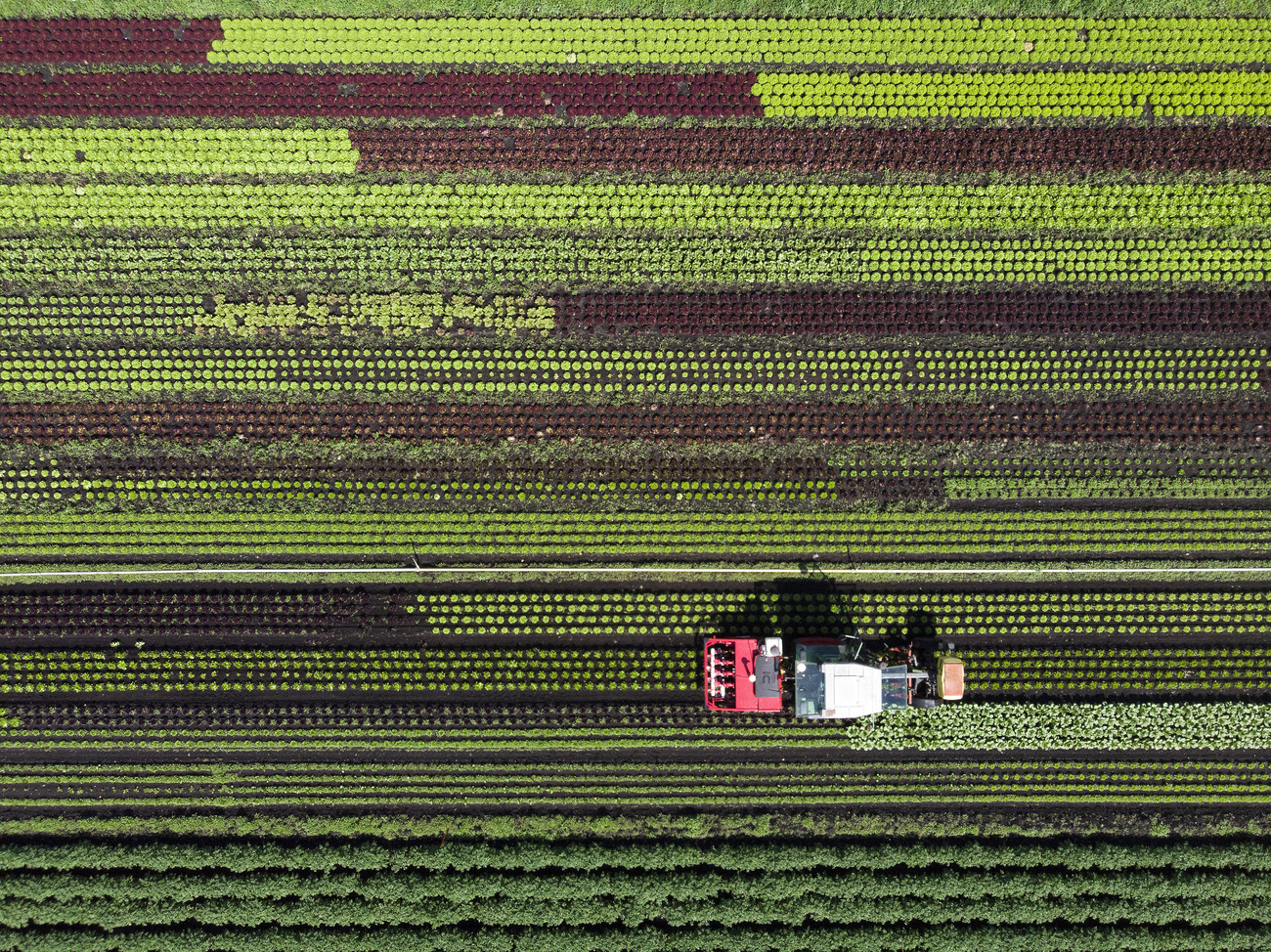
More
Main Swiss farmers’ group alarmed by planned pesticide ban
SWI: There is also disagreement among organic farmers themselves about the initiatives. The heads of the Bio Suisse association are against the “drinking water” initiative, because they say it would lead to too many organic farmers and a drop of prices.
K.B.: That’s a problematic position wh
ich I don’t understand. It’s too focused on the current situation. Our goal should be to expand the organic agriculture sector. As a result, it’s quite possible that consumer prices fall. But we should also say that, at the moment, some big producers are pushing prices up by reaping massive margins.
SWI: What’s your gut feeling about the vote on June 13? The campaign is kicking off in earnest now…
K.B.: We’ll have to see: the citizen committees are fighting against much bigger forces. Global agrochemical companies are running a campaign, as are national businesses and the biggest farmer’s association. It’s David-versus-Goliath.
It will be tough, but it’s always the same in Swiss politics – constant dripping wears the stone. For agricultural initiatives, in particular, you can lose a vote but still manage to bring about certain changes. The fact that the debates in the run-up have already been so animated shows that the initiatives are onto something. And in the end, we are talking about the problems, which is in itself really important for longer-term change.
Translated from German by Domhnall O’Sullivan, swissinfo.ch

In compliance with the JTI standards
More: SWI swissinfo.ch certified by the Journalism Trust Initiative










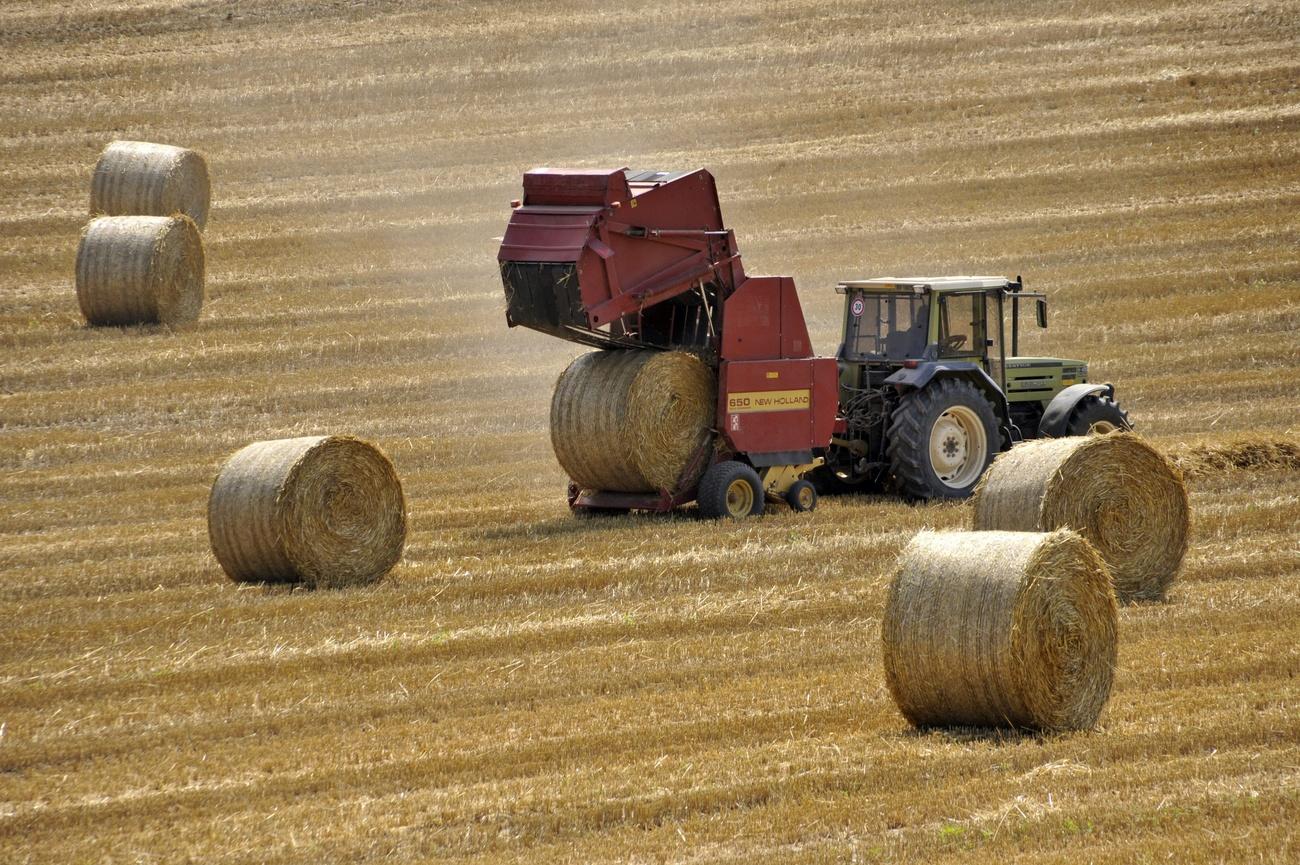
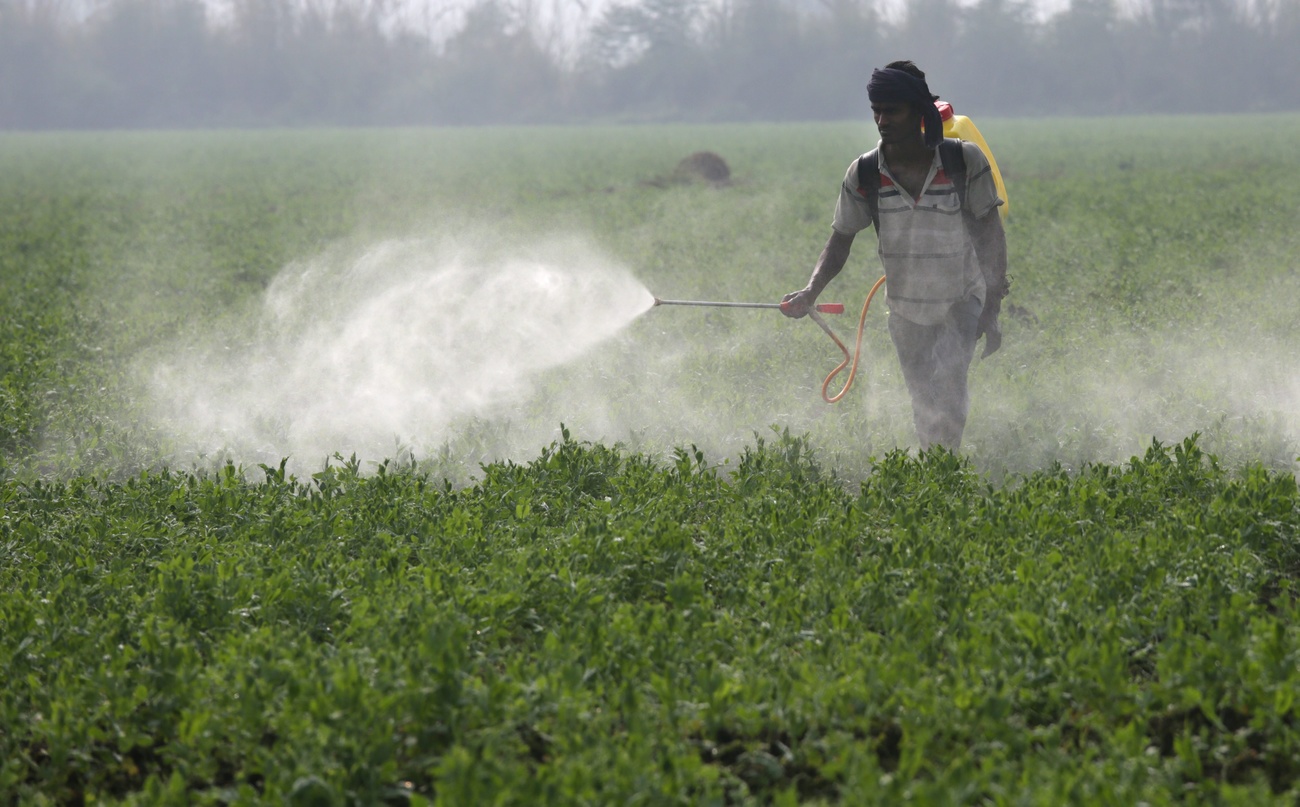
You can find an overview of ongoing debates with our journalists here . Please join us!
If you want to start a conversation about a topic raised in this article or want to report factual errors, email us at english@swissinfo.ch.